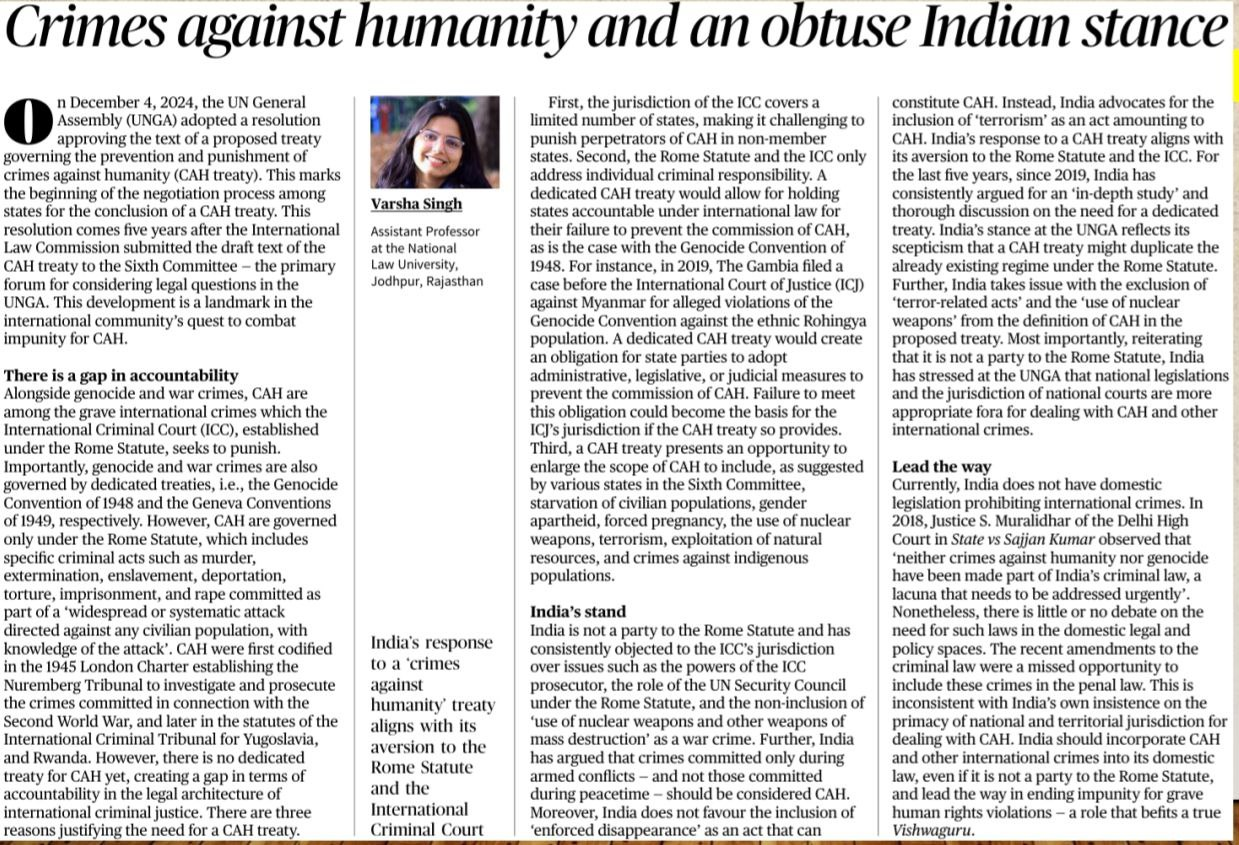Crimes Against Humanity and India's Position: Need for a CAH Treaty
Introduction
- The UN General Assembly’s (UNGA) resolution on December 4, 2024, approving a draft treaty to address Crimes Against Humanity (CAH), marks a significant step in international law.
- This treaty, proposed five years after the International Law Commission’s draft, aims to combat impunity for CAH, complementing existing frameworks on genocide and war crimes.
- Understanding Crimes Against Humanity
- Definition: CAH includes acts like murder, enslavement, deportation, torture, and rape as part of a systematic attack against civilian populations.
- Existing Framework:
- Governed under the Rome Statute of the International Criminal Court (ICC).
- Unlike genocide and war crimes, there is no dedicated treaty addressing CAH.
- Need for a CAH Treaty
- Accountability Gap:
- ICC jurisdiction is limited to member states.
- Rome Statute emphasizes individual responsibility, leaving gaps in state accountability.
- Potential Benefits:
- Obligates states to adopt preventive measures.
- Expands CAH definition to include modern issues like gender apartheid, nuclear weapons, and crimes against indigenous populations.
- Strengthens international justice mechanisms such as the International Court of Justice (ICJ).
- India’s Position on CAH
- Aversion to ICC and Rome Statute:
- India is not a party to the Rome Statute.
- Concerns over ICC prosecutor powers and the inclusion of nuclear weapons as war crimes.
- Domestic Legal Gaps:
- Indian criminal law lacks specific provisions for CAH or genocide.
- Calls for incorporation of CAH into domestic legal frameworks remain unaddressed.
- Skepticism Towards CAH Treaty:
- Fear of duplication with Rome Statute provisions.
- Advocacy for addressing CAH through national legislations.
- Recommendations for India
- Update criminal laws to align with international standards.
- Actively participate in CAH treaty negotiations to ensure national interests are safeguarded.
- Promote a balance between territorial jurisdiction and global justice obligations.
Conclusion
- India’s skepticism toward international frameworks like the ICC highlights its focus on sovereignty. However, the absence of robust domestic laws addressing CAH underscores the need for legislative reforms.
- India should adopt a proactive approach to shaping the CAH treaty to combat impunity for grave human rights violations, befitting its global stature.
Mains Practice Question |
Q. Critically analyze India’s stance on the Crimes Against Humanity (CAH) treaty. Discuss the need for a dedicated domestic legal framework to address CAH. |


